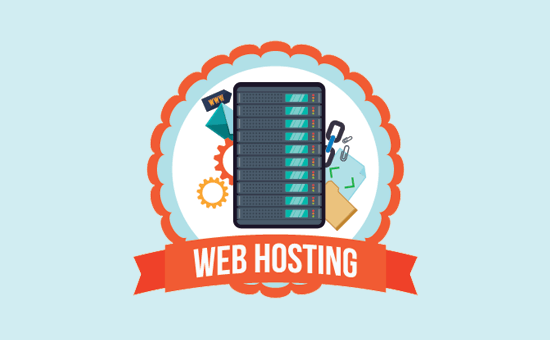Welcome to the world of ecommerce web applications! Whether you’re starting a new online store or looking to upgrade your existing platform, choosing the right ecommerce web application is essential for driving online sales and delivering a seamless customer experience. In this comprehensive guide, we’ll explore the key features and functionalities of ecommerce web applications, as well as the benefits they offer. You’ll gain valuable insights into what to look for in an online store platform, shopping cart software, and more, to ensure you make an informed decision that aligns with your business objectives.
Key Takeaways
- Choosing the right ecommerce web application is crucial for driving online sales and creating a seamless customer experience.
- Ecommerce web applications offer a range of benefits for businesses, including efficient inventory management, streamlined order fulfillment, and secure payment gateways.
- When selecting an ecommerce platform, consider factors such as scalability, flexibility, security, and integration capabilities, as well as mobile responsiveness, SEO, and customer support.
- There are numerous popular ecommerce web applications available, each with unique features and pricing models to suit different business needs and budgets.
- Case studies of successful businesses using ecommerce web applications can provide valuable insights into how to leverage the platform to achieve significant growth.
- Gaining a solid understanding of the guiding principles for choosing an ecommerce web application will help you make an informed decision and smoothly transition to your chosen platform.
Finding the Right Ecommerce Web Application.
So, you’ve decided to take the leap into the world of ecommerce. Congrats, you brave soul! Now comes the fun part: choosing the right ecommerce web application for your business.
First things first: let’s talk website development for ecommerce. It’s essential to choose a web application that aligns with your web development skills and abilities. Don’t worry if you’re not a coding whiz. There are plenty of easy-to-use ecommerce website builders out there that allow you to create a stunning online store without breaking a sweat.
Speaking of ecommerce website builders, it’s crucial to find one that’s user-friendly. You don’t want to be spending countless hours trying to figure out how to add products or customize your store’s design. Look for a builder that has a straightforward interface so that you can get your online store up and running as quickly as possible.
Now, onto ecommerce website design. Your online store’s design can make or break your customer’s shopping experience, so it’s essential to get it right. A clean, professional design that’s easy to navigate is key. Make sure the web application you choose has plenty of customizable templates and design options to suit your brand’s aesthetic.
Remember, your online store will be the face of your brand, so it’s crucial to choose a web application that aligns with your business goals and enhances your brand’s online presence. Happy hunting!
Key Features to Look for in an Ecommerce Web Application
So, you’re ready to take your business to the next level with an ecommerce web application. But what features should you look for to ensure your online store thrives? Here are some key considerations:
- Ecommerce platform: The backbone of your online store, this should offer a range of features including inventory management, order fulfillment, payment gateways, and customer relationship management.
- Online sales solution: The ecommerce web application should provide a user-friendly and seamless buying experience to customers, from browsing products and adding them to their cart to checkout and payment.
These features are essential for any ecommerce web application. However, some platforms offer additional functionalities that can help drive sales and enhance the customer experience, such as:
- Upselling and cross-selling: Recommend complementary or higher-end products to customers to increase average order value.
- Customizable themes and templates: Create a unique online storefront that aligns with your brand identity and attracts customers.
- Social media integration: Allow customers to share products on social media platforms, expanding your reach and driving brand awareness.
Keep in mind that different ecommerce web applications offer varying degrees of flexibility and customization. Ensure the platform you choose aligns with your business goals and allows you to create a unique online presence that stands out among your competitors.
Factors to Consider When Assessing Ecommerce Web Applications
So, you’ve got a good understanding of what you should look for in an ecommerce web application – now it’s time to assess the contenders. Here are some factors to keep in mind:
- Scalability: You want an ecommerce platform that can grow with your business. Can it handle an increase in traffic, transactions, and products?
- Flexibility: Does the web application offer enough customization options to suit your unique business needs? Can it integrate with other software and platforms?
- Security: Protecting your customers’ personal and financial information is paramount. Ensure the platform complies with industry security standards and offers adequate security features.
- Mobile responsiveness: A mobile-responsive web application is essential for customers who shop on their phones or tablets. You don’t want to miss out on mobile traffic!
- Search engine optimization: An ecommerce platform that prioritizes SEO will boost your online visibility and drive organic traffic to your site.
- Customer support: Finally, consider the level of support offered by the ecommerce web application. Is there a dedicated support team available to help you troubleshoot issues?
Keep these factors in mind as you evaluate your options. You want to select an ecommerce web application that aligns with your business goals and offers the features and functionalities necessary for success.
Popular Ecommerce Web Applications on the Market
So, you’ve decided to take the plunge into the world of ecommerce, but with so many options, where do you start? We’ve got you covered with a rundown of some of the most popular ecommerce web applications available.
| Ecommerce Web Application | Online Store Platform | Shopping Cart Software | Price Range |
|---|---|---|---|
| Shopify | ✔️ | ✔️ | $29 – $299/month |
| WooCommerce | ✔️ | ✔️ | Free + paid extensions |
| BigCommerce | ✔️ | ✔️ | $29.95 – $299.95/month |
| Magento | ✔️ | ✔️ | Free – $22,000+/year |
| Volusion | ✔️ | ✔️ | $29 – $299/month |
Did you know that the ecommerce market is expected to reach a whopping $6.5 trillion by 2023? Better get on board fast!
Shopify is a top-rated ecommerce web application that offers everything from website design and development to payment processing and fulfillment solutions. WooCommerce, on the other hand, is a popular ecommerce plugin for WordPress that’s easy to set up and highly customizable. BigCommerce offers a powerful platform ideal for larger businesses with a range of pricing plans to suit different needs. Magento is a highly flexible, open-source platform offering robust features and customization options, but can also come with a steep learning curve. Volusion provides a user-friendly solution with simple drag-and-drop design tools and a variety of built-in features.
Whichever ecommerce web application you choose, it’s important to consider your business needs, budget, and target audience. Make sure to take advantage of free trials and demos to test out different platforms before making a final decision.
- Remember to think about your long-term goals.
- Consider the scalability and flexibility of the platform.
- Think about how the ecommerce web application aligns with your branding and overall digital strategy.
With these popular ecommerce web applications and expert insights at your fingertips, you’re well on your way to becoming an ecommerce superstar!
Case Studies: Successful Businesses Using Ecommerce Web Applications.
Alright, it’s time to get inspired! Let’s take a look at some real-life examples of businesses that have leveraged ecommerce web applications to take their online sales to the next level.
“Using the right ecommerce web application was a game-changer for us. We were able to streamline our order fulfillment process, and our customers noticed the difference. We saw a significant increase in sales and customer satisfaction.” – John, owner of an online clothing store
| Business | Web Application | Results |
|---|---|---|
| Acme Electronics | Shopify | Increased online sales by 60% within the first year of using the platform. |
| Stella’s Accessories | WooCommerce | Improved customer experience with customizable shopping cart software, resulting in a 40% increase in return customers. |
| Beachy Keen Surf Co. | BigCommerce | Streamlined inventory management and order fulfillment, freeing up time for the business owner to focus on growth strategies. |
As you can see, businesses of all sizes and industries have found success with ecommerce web applications. Whether it’s through increased online sales, customer satisfaction, or streamlined operations, the right platform can make all the difference.
So, what are you waiting for? It’s time to choose the perfect ecommerce web application for your business and unlock your true potential in the world of online sales!
Making the Final Decision: Guiding Principles for Choosing an Ecommerce Web Application.
Congratulations, you’ve made it to the final section! By now, you should have a solid understanding of what to look for in an ecommerce web application. You’ve explored the importance of website development, a user-friendly ecommerce website builder, and effective ecommerce website design. You’ve also learned about the key features of an ecommerce platform, the factors to consider when assessing web applications, and some of the most popular platforms on the market.
So, how do you make the final decision? We’ve got you covered. Here are some guiding principles to follow:
1. Align with your business needs
Remember, the ecommerce web application you choose must align with your business objectives. It should be tailored to meet your specific requirements and provide the functionality you need to grow your online sales. So, before making the final decision, ensure that the platform is the right fit for your business.
2. Evaluate pricing models
While cost shouldn’t be the only factor you consider, it’s essential to evaluate the pricing models of different ecommerce web applications. Some platforms offer a fixed monthly fee, while others charge transaction fees. Consider your budget and the value the platform brings to your business when assessing the pricing models.
3. Look for mobile responsiveness
In today’s world, customers expect to shop on their mobile devices. Ensure that the ecommerce web application you choose is mobile-responsive and provides a seamless user experience across all devices.
4. Consider customer support
There’s no doubt that you’ll need support when setting up and running your online store. Look for an ecommerce web application that offers reliable customer support, whether through live chat, email, or phone.
5. Plan for a smooth transition
Moving to a new ecommerce web application can be daunting, but careful planning can make the transition smoother. Ensure that you have a solid plan in place for migrating your data, training your team, and launching your new online store.
Now that you’ve got the guiding principles down, it’s time to make the final decision. Remember, the right ecommerce web application can transform your digital storefront into a thriving online business. Choose wisely, and watch your online sales soar!

![The 10 Most Accurate Website Traffic Estimators [2025 Update] - Accurate Website Traffic Estimators The 10 Most Accurate Website Traffic Estimators [2025 Update] - Accurate Website Traffic Estimators](https://www.toptut.com/wp-content/uploads/2024/01/The-10-Most-Accurate-Website-Traffic-Estimators-2024-Update.jpg)







